These 9 female-founded food and drink startups are changing up the sector. We caught up with the founders to hear more about their stories, how they got their start, and how they are making a positive impact on the environment.
1. Two Brooks
Founder(s): Francesca Bruni
Website: https://www.twobrooks.co.uk/
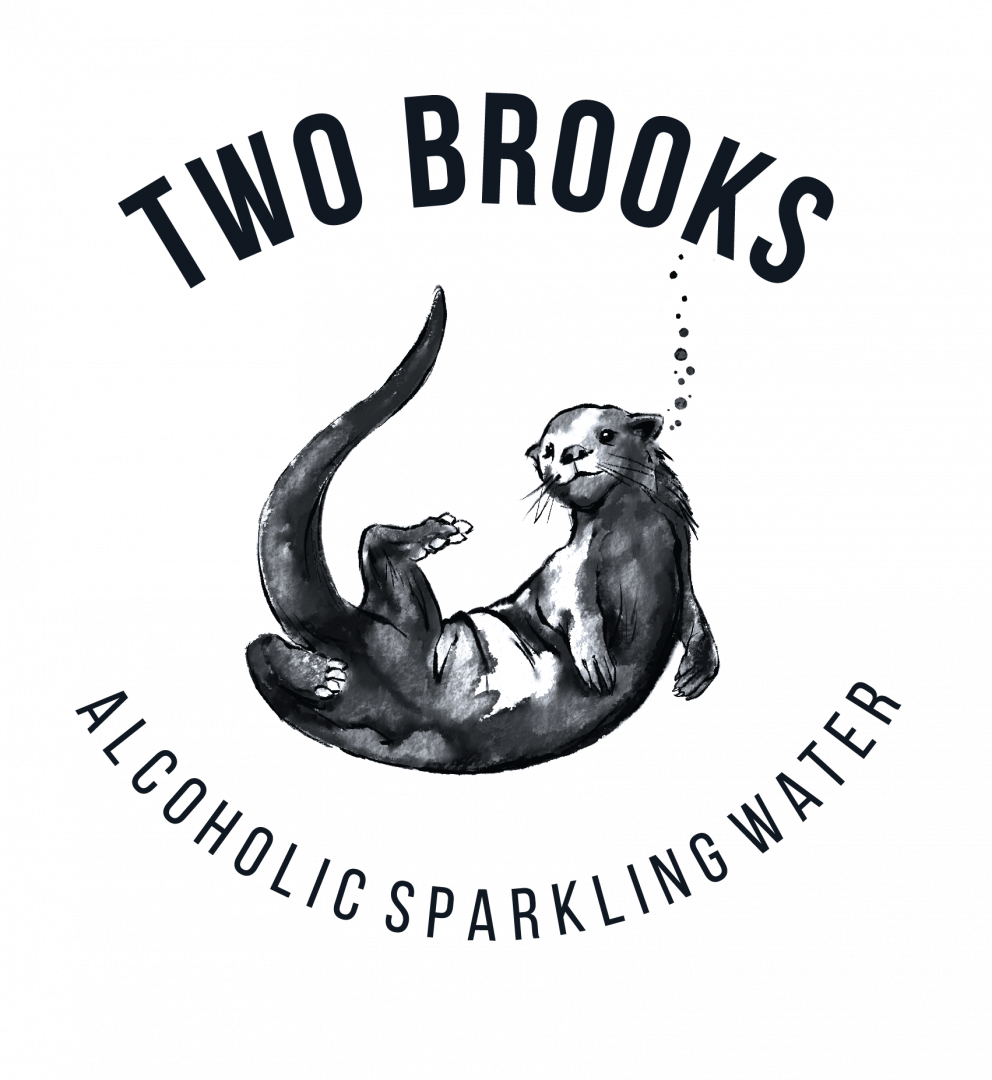
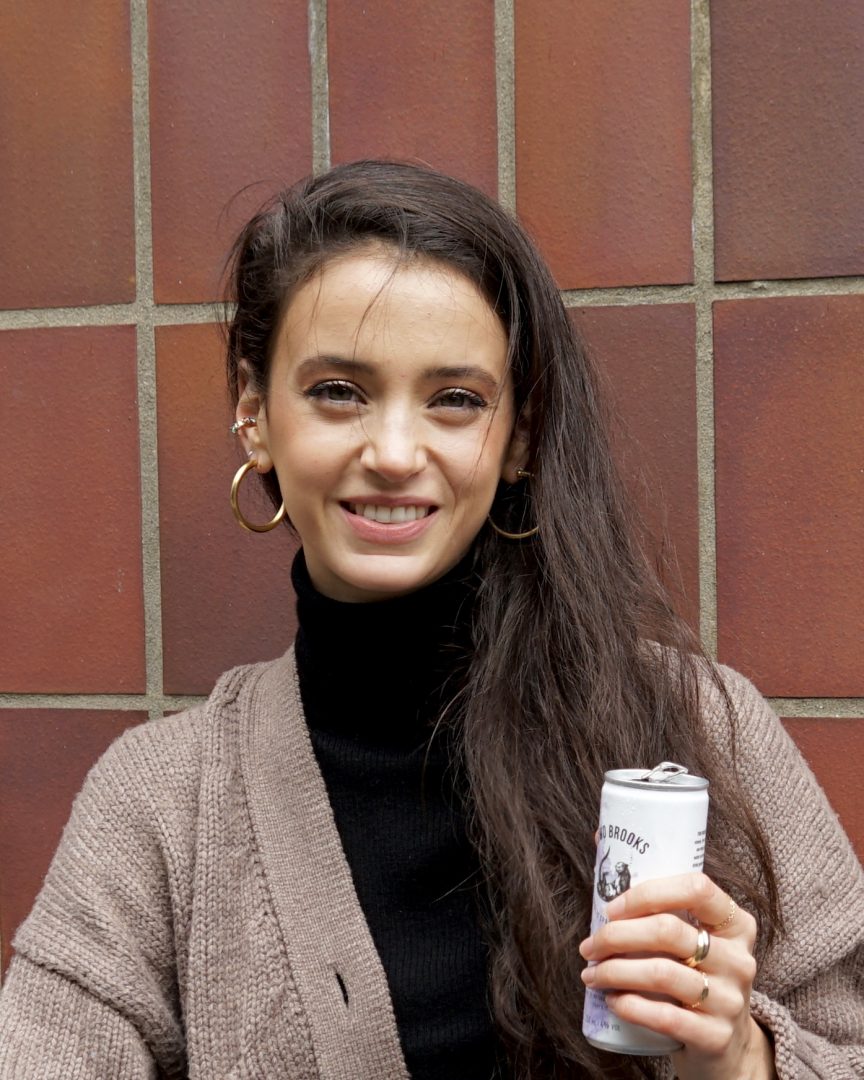
How did you get the idea to launch your company?
I didn’t – my big brother did! Having just left a career in M&A Insurance, my older brother Fabio was itching to start his own business. Being a fan of sparkling water and having spotted the rise of hard seltzers in the States a couple years ago, he saw an opportunity to combine business and passion.
It so happened that I was looking for a career change, having recently left my job in political risk insurance brokering. Also eager to start my own enterprise but not knowing where to start, we quickly decided to join forces, take the leap & found the company together.
It was absolutely terrifying at first (and still is sometimes), but we mutually had utmost faith in each other’s’ capabilities and pushed each other up. Very quickly, our little brother Paolo joined the team. Since then, it’s been a very steep learning curve, full of phenomenal ups and life lessons. I couldn’t dream of a better team to have by my side through this experience!
My advice for any aspiring entrepreneur: you’ll never truly feel ready, so start and then figure it out as you go.
What, if any, challenges have you faced as a woman breaking into this sector?
Coming into the alcohol industry, a traditionally male dominated industry, I had a lot of apprehensions. However, my experience as a woman in the sector has been extremely pleasantly surprising.
I believe this is in part because I’m not only in the drinks industry but also, and perhaps more importantly, in the start-up sector. The start-up mentality and community in the F&B sector is quite unparalleled, and there is a real sense of support & skills share amongst challenger brands. We’re all rooting for the underdogs!
I’ve also been very lucky to have met a host of female and male founders/entrepreneurs, who have always made the time to jump on a zoom to share their journey with me. Being able to learn directly from another founder’s past mistakes, tips, tricks and recommendations has saved us from a lot of hardship.
Hard seltzers are a new category in the UK, and as such, the ‘rules of the book’ have not yet been set. This has given us tremendous freedom to pave the way and lead by example. And despite a few negative experiences here or there, my brothers having my back unconditionally, supporting and empowering me throughout, has taught me to face headfirst any gender-based obstacles.
How is the company striving to be more ethical / environmentally conscious in the future?
Two Brooks has always had sustainability at the core of its ethos. That’s why our drinks are crafted with spirit made from British apples, only 100% natural fruit flavourings and are 100% made in the UK. What’s more, we’ve already planned to change our aluminium cans to printed cans, which will effectively make them entirely & infinitely recyclable.
But beyond the liquid in our cans, to celebrate the otter than adorns our cans, we’ve partnered with the UK Wild Otter Trust. The British charity specializes in rehabilitating wild otters, protecting and conserving the animal and its wild habitat in the UK. In fact, we even adopted one!
Currently, our packaging is almost entirely recyclable, and we are striving to become a zero-plastic company. We’re also excited to share that we’ll shortly be launching our very own merchandise line, made entirely from organic and recycled fabrics – watch this space!
2. Ful Foods
Founder(s): Julia Streuli (from the USA), Sara Guaglio (from Italy) and Cristina Prat Taranilla (from Spain)
Website: https://fulsuperfood.com/

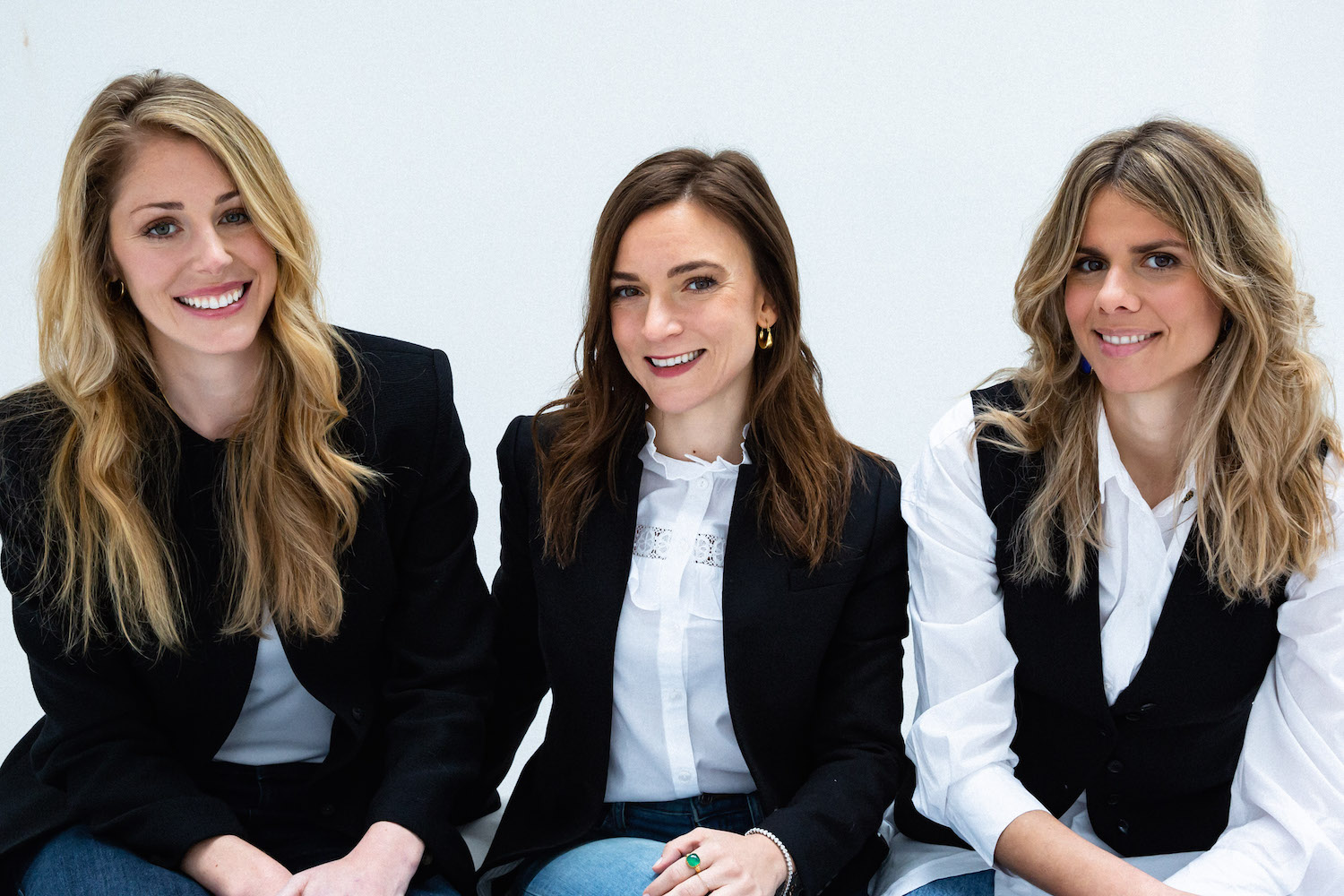
How did you get the idea to launch your company?
We all met in Singapore in 2018 during our MBAs at INSEAD and joined forces to explore business solutions to our global food system’s planetary and human health challenges. By the end of our research (which turned into a 6 month long multi-city tour), we were convinced of three things: 1) alternative proteins and ingredients presented one of the most compelling opportunities to impact human and planetary health, 2) microalgae was among the most high impact ingredients because of its nutritional benefits and climate positive production potential, and 3) we loved working together and didn’t want to stop… and so the natural conclusion was to start a company together focused on microalgae (!)
What, if any, challenges have you faced as a woman breaking into this sector?
Starting a company in this sector laid bare how little diversity still exists in positions of power and why diversity matters in decision making roles. As young female founders whose first product appeals to young (skewing female) consumers, we are – the majority of the time – interacting with older men who make decisions about whether to fund our company or whether to give our product access to distribution (as examples). Obviously there are exceptions (both in mindset and demographic), but on the whole we’ve seen that personal preference influences decisions (Do I like this product? Can I see myself buying this? Can I relate to this team?). It doesn’t mean there isn’t a huge market for what we are creating, but it does mean that when we are in the early stages of launching a company and don’t yet have demonstrated traction to point to, we have to confront this bias in a very real way.
How is the company striving to become more environmentally conscious / ethical in the future?
This idea of producing an “environmentally conscious” product is at our core! We started FUL to create food and beverage products that net benefit the planet through the way they are produced – freeing up arable land, using limited natural resources like fresh water and efficiently recycling CO2 to produce nutrients.
3. Spice Kitchen
Founder(s): Shashi Aggarwal
Website: https://www.spicekitchenuk.com/

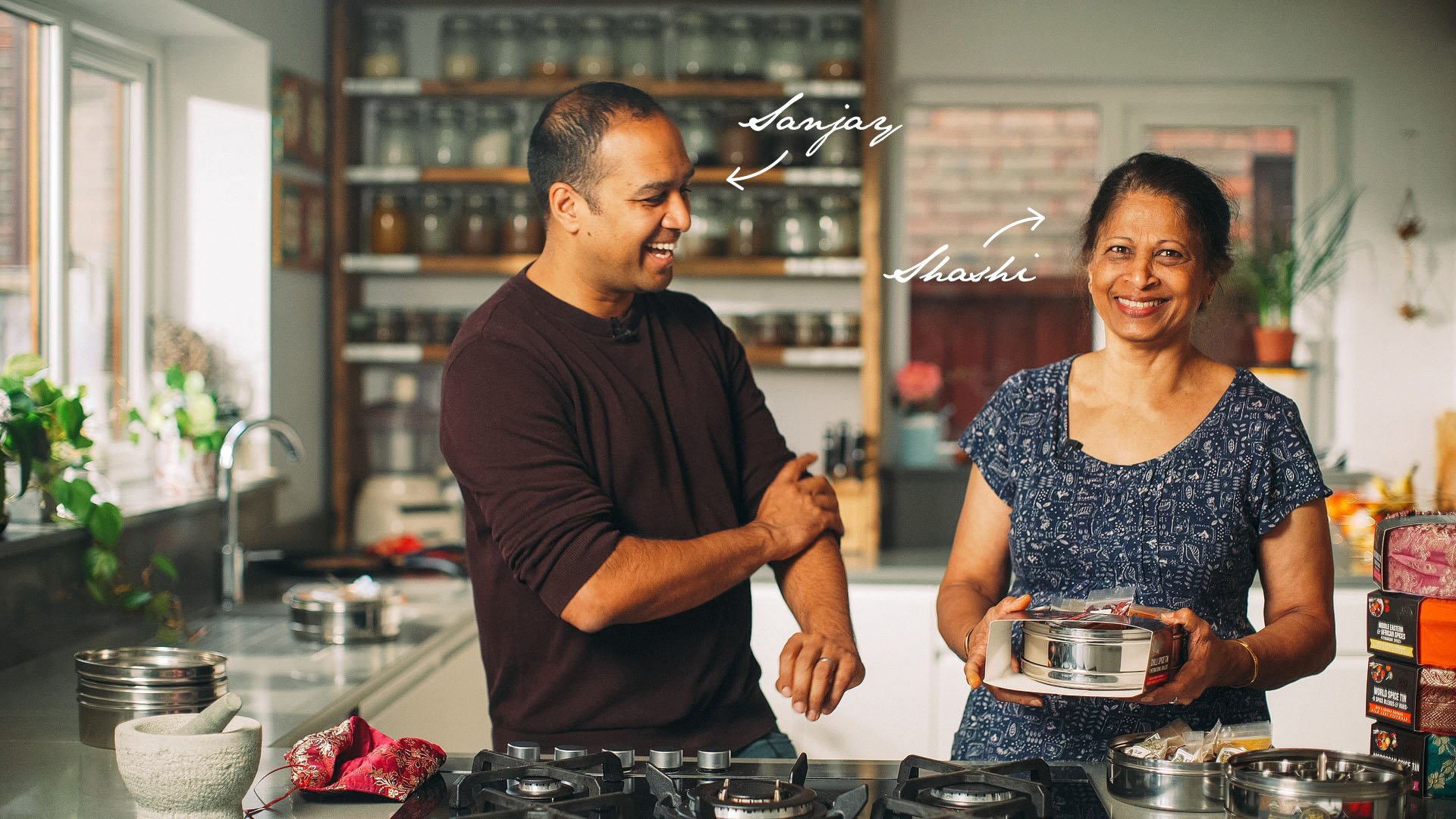
How did you get the idea to launch your company?
I was looking for a project to keep me busy. Having retired from our family business about five years earlier, I was getting a little bored! I’ve always been an active person. Anyway, I was telling my son Sanjay over the kitchen table on Christmas Day that I wanted something to keep me occupied and he suggested I put together a Masala Dabba (traditional Indian Spice Tin) and list it for sale on eBay. I thought to myself ‘why not’ and so we spent the afternoon making a tin and advertising it. The tin sold the next day, and quite quickly we realised there was a real demand for our products. Spice Kitchen was born! Sanjay and I are co-founders and we run the business together, as a mother and son team. We’ve never looked back.
What challenges have I faced as a woman?
In all honesty, none. Perhaps if I had been younger with a young family then the balance of work and career would have been an issue, but coming to the business later in life has meant I am freed up to focus on the business and giving my attention to it without the guilt that many women with families experience. I’m also of the age where I’m ‘in my power’ as a woman, I’m not trying to be anything other than I am and will use the same qualities of leadership I use in the family. My motto is always that if you do something with love, you can’t go far wrong.
How is the company striving to be more ethical / environmentally conscious in the future?
I think like every business, we make an effort but there is always more that can be done.
We’re proud to be selling a product that lasts/is durable and by its nature encourages refilling rather than repurchasing.
Our first priority regarding sustainability is exploring a good/robust alternative to packaging our spice bags. That’s big on our agenda for this year and into next.
We are also going to be applying to become a Certified B Corp and with that, every element of our business will be scrutinised from an ethical position. We are totally up for the challenge and ready to accept the areas we need to change or do better in to get there. The drive behind the B Corp project is that the accreditation will guide us through looking at the big and the small picture so we can make shifts where we need to.
4. Whisp
Founder(s): Harriet Cuming
Website: https://whispdrinks.co.uk/

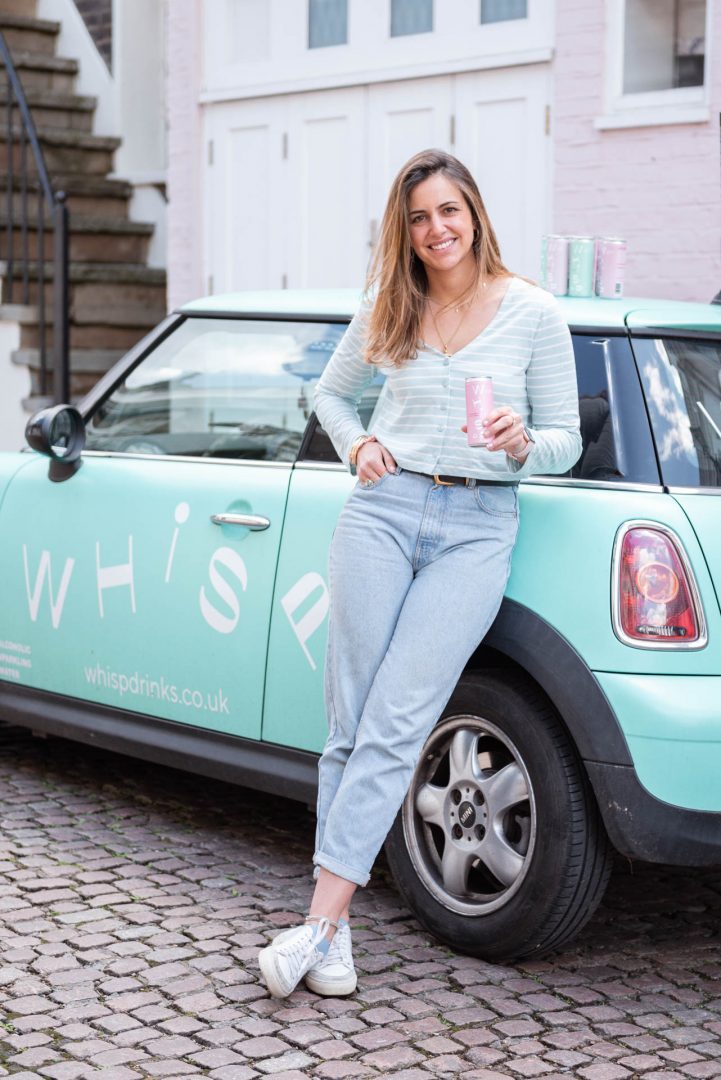
How did you get the idea to launch your company?
I use to work for Bacardi so I was very aware of the rapidly growing no & lo category and also coupled with a general societal shift towards health and wellness it seemed like the perfect fit. I was out a lot with Bacardi but also a personal trainer on the side so Whisp enabled me to lead a balanced life, it allowed me to enjoy a drink and also not miss the workout the next day.
What, if any, challenges have you faced as a woman breaking into this sector?
I read right at the start of my journey that just 19% of startups are founded by women – I think this gave me even more determination to succeed. In terms of challenges, I think a lot of senior positions within this sector are filled by men so male founders may naturally have more in common and likely be chosen over me. That being said, I have met some brilliant female leaders who are VERY keen and willing to help a fellow female business succeed and avoid the struggles they faced to reach their position. Fingers crossed it becomes a more and more equal sector with time.
How is the company striving to be more ethical / environmentally conscious in the future?
We are in the process of becoming a B-Corp which is very exciting. At Whisp we believe in karma, so we tread lightly – we don’t use any plastic packaging and we’re made 100% in the UK to keep our carbon footprint down and support local produce. We also plant 12 trees a month for every Whisp team member in conjunction with Ecologi – It is our long term pledge to be climate positive. Currently we are a team of 4 so 576 trees will be planted annually and 44 tonnes of CO2 removed.
For any questions, comments or features, please contact us directly.
5. Brixton Wine Club
Founder(s): Louisa Payne
Website: https://www.brixtonwineclub.com/


How did you get the idea to launch your company?
BWC actually used to be a wine tasting group that I ran from my flat after studying for my WSET Level 2. During the covid lockdowns of 2020, I had been trying to figure out a way to launch The Wine Tap Van. I decided to try and do online wine tastings. Whilst developing the idea, I came across so many canned wine start ups and figured that would be a perfect fit to re-imagine Brixton Wine Club – a fun, affordable, no-red-trousers-allowed wine tasting club.
What, if any, challenges have you faced as a woman breaking into this sector?
Coming in as a complete newbie, it’s clear that wine has been a male dominated business. However, I have made some great business and personal connections within the wine community. Many of my suppliers, like me, are themselves starting out in the industry so it feels like quite an exciting time.
How is the company striving to be more ethical / environmentally conscious in the future?
The wine format itself is very environmentally conscious. Cans are infinitely recyclable, unlike glass. Similarly to wine in kegs, the lightweight nature of cans means transporting them involves less emissions. Many of the brands I stock practise sustainable viticulture and use sustainable packaging, which is something I try to mirror in my operations too. Whether that’s cycling to prepare orders and sourcing as much recycled packaging as I can. It’s all the smaller things that will make the difference.
6. Hunter & Gather
Founder(s): Amy Moring
Website: https://hunterandgatherfoods.com/

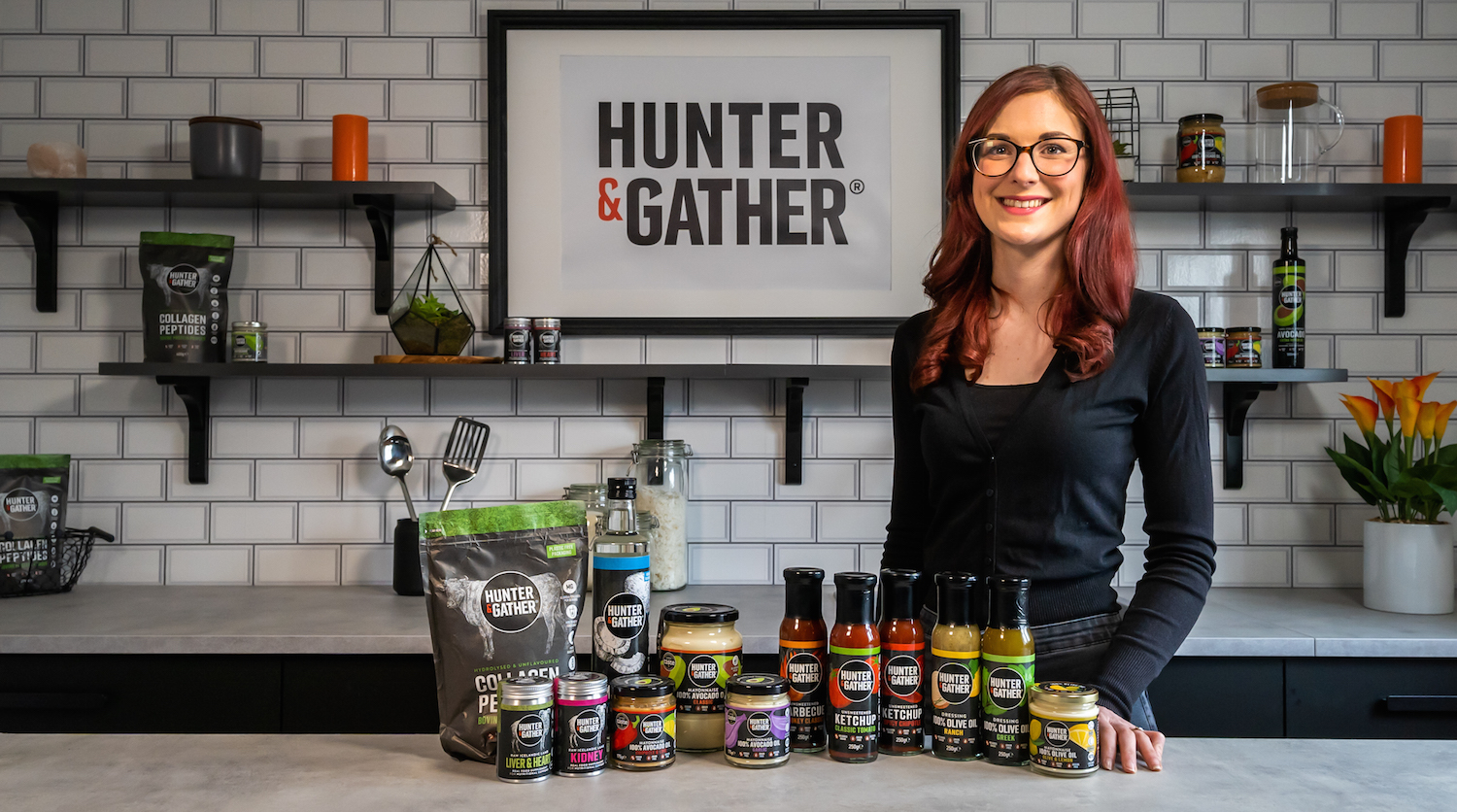
How did you get the idea to launch your company?
“Right from the start, we were spurred on by a lack of trust in global food companies, who were churning out highly processed foods at questionably low prices…
“As a lifelong coeliac, I’ve always understood the link between gut and brain health and learnt to challenge and question from an early age. My co-founder and life partner Jeff suffered as a teenager with eczema, asthma, and acne, and after a running injury in 2012 he embarked on a low carb lifestyle which marked a turning point for his health and happiness and fostered an innate passion and pursuit for optimal health.
“Fast forward to 2016 and I was working for a cutting-edge pet food disruptor on a mission to champion ‘proper food’ for pets, whilst Jeff was stuck in a rut in his career as a quantity surveyor. We thought, how can we have the most significant impact on people’s health & wellbeing? At the time, consumer demand for healthy food was growing, but there was very little choice on shelf.
We had no platform, but we both had entrepreneurial spirits. I knew about the food industry and routes to market. Jeff understood supply chains. Launching our own food business made sense.
“From the outset, we understood the importance of taking a ‘tech first’ approach to creating and building our community of loyal fans and followers. There was (and still is) a huge appetite for optimal health in the UK, and we set out to be trailblazers.”
What, if any, challenges have you faced as a woman breaking into this sector?
“Being a female founder in a male dominated sector can be tough at times. You need to be driven, determined and exceptionally focused…
“I’m a big believer in the power of community in building strong, meaningful relationships and learning from people who inspire me. I also talk regularly at industry events including Bread & Jam and Young Foodies, where I actively support and mentor fellow entrepreneurs who are making their way in the sector.
“At Hunter & Gather, we actively champion women in the workplace and we’re passionate about running a flexible, diverse and inclusive business. It’s about promoting opportunity and as a founder I’m very passionate about that.”
How is the company striving to be more environmentally conscious / ethical in the future?
“As a purpose led business, we’re committed to reducing plastic waste, and we use only glass jars, bottles and compostable bags across our entire product range. In fact, our 100% Pure Bovine Collagen Peptides were the first in the world to be 100% plastic-free and in fully recyclable packaging.
“We’re also committed to sourcing the finest ingredients. For example, our Olive Oil is sourced from ancient groves in the Cordoba region of Spain, which are harvested in the traditional way, using a physical method to press the oil so absolutely no chemical hexanes or solvents are used, whilst our ketchup uses only the finest organic tomatoes (with a blend of herbs and spices) and is completely free from refined sugar, dates, syrups and sweeteners.
“For us, it’s about balancing profit with purpose. When we launched the business, people asked. ‘How can you sell a jar of mayonnaise for £6?’ Today, our 100% Avocado Oil Mayo family sized jar sells for almost £15 at Ocado. People are happy to spend more for quality and integrity. We are literally trailblazers for change, and it’s a great feeling.”
7. Mandira’s Kitchen
Founder(s): Mandira Sarkar
Website: https://www.mandiraskitchen.com/
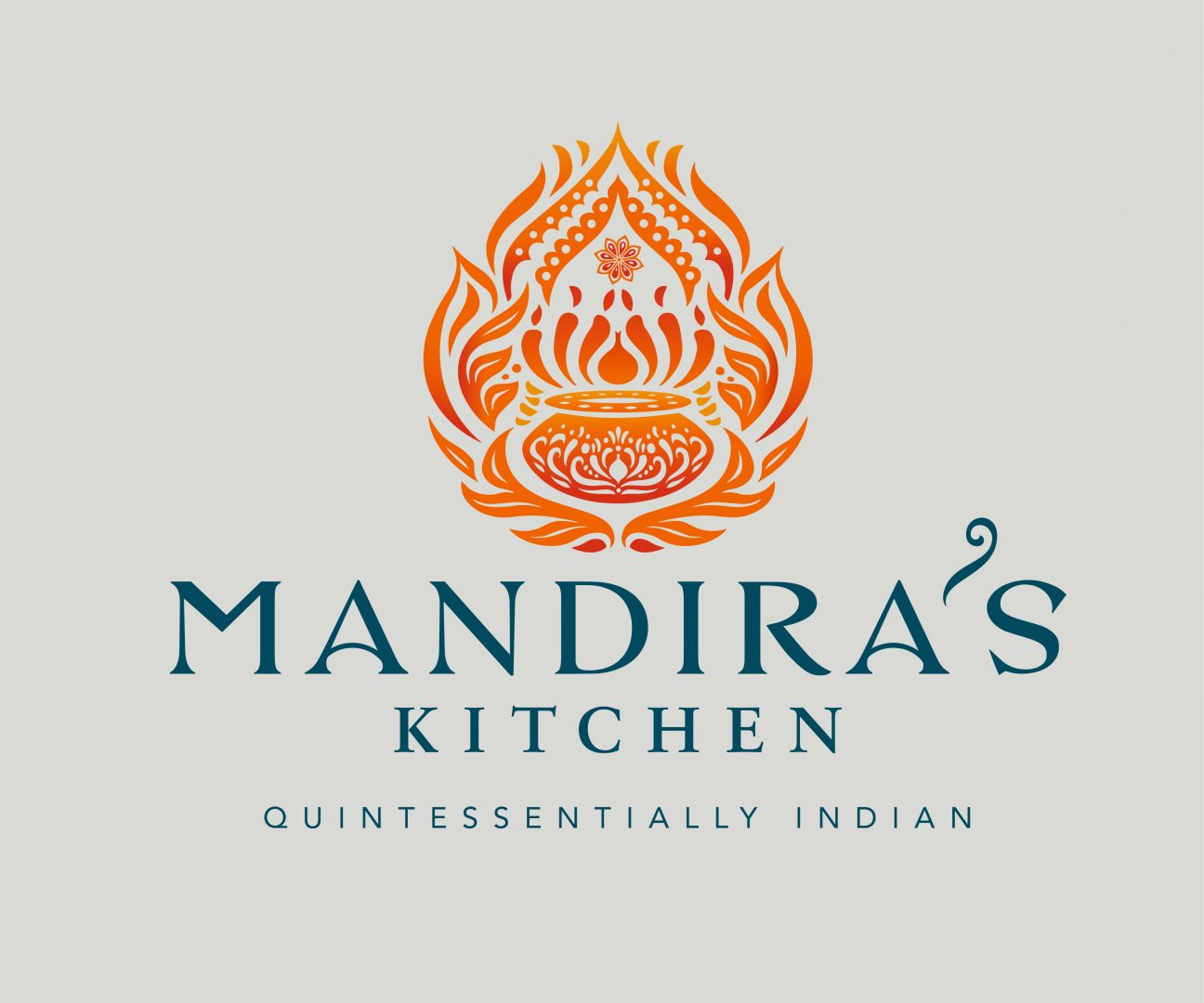
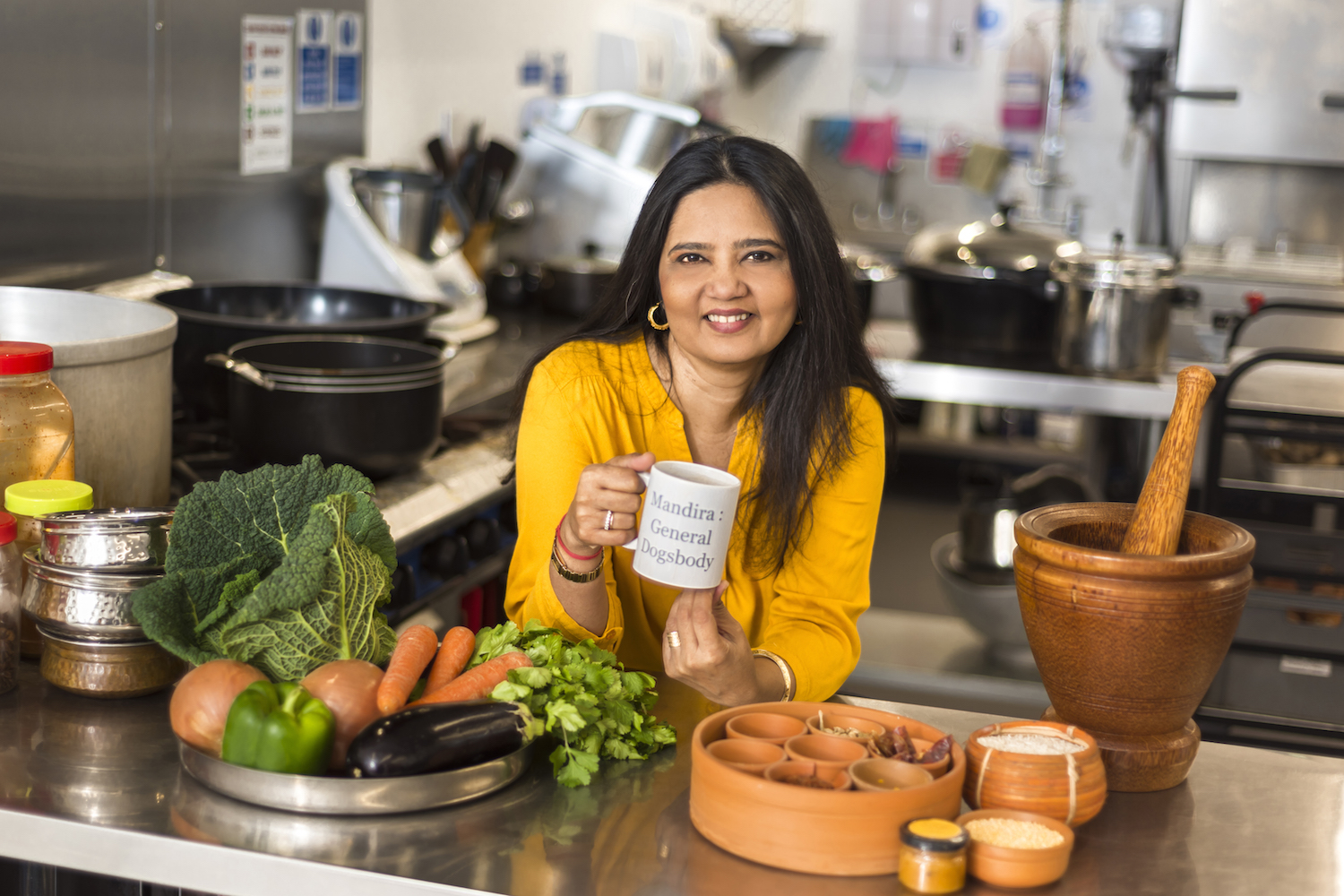
How did you get the idea to launch your company?
The business story starts when I came over to the UK from India over 20 years ago and embarked on a successful career as a Management Consultant. Throughout that time I frequently bemoaned the lack of authentic Indian food and everyone found it amusing that I missed our old cook more than the parents!
Eventually a friend’s challenge to “put your money where your mouth is!” led to Mandira’s Kitchen being born. Initially centered around supper clubs, cooking demonstrations and lessons, and based from home – the business quickly outgrew the home kitchen and a special kitchen was built in the garden. This too was soon outgrown, as the popularity of the food meant the range extended to freezer meals, farmers markets, farm shops and catering.
With a range of dishes encompassing meat, fish, vegan, vegetarian and gluten free – each recipe comes with a personal story – we do not churn out a curry because it sounds Indian.
When a 400 year old dilapidated cow shed by the Silent Pool in Surrey became available, I took a leap of faith and convinced the husband it would be a good idea to take some of his pension pot and invest it here. The Silent Pool was already becoming a hub for food and drink with Silent Pool Gin Distillers and Albury Organic Vineyard in residence for several years already. So the work began to convert the barn to the new home for Mandira’s Kitchen and in 2019 the barn opened with a visit from the Earl of Wessex and it was full steam ahead. Our freezer meals are now stocked in many local farm shops, sell through our little shop and offer UK wide delivery – during Covid we have had an 1800% growth and have had many celebrities including Nigella Lawson enjoy our food.
What, if any, challenges have you faced as a woman breaking into this sector?
The food and hospitality industry is by its very nature an inhospitable environment – unsocial hours, heavy manual work and high pressure seems to be the norm. Added to this, there are hardly any women-led professional Indian food businesses in the UK – a sector usually dominated by Bangladeshi owned male takeaways or home based part time catering businesses run by women. However, our ethos has always been to create a women-led and women staffed business – we have 16 women of all ages working in the business – and have tried to employ a local workforce as far as possible.
Our passionate and committed team mainly consist of women who are on a second career with MK who manage most aspects of the business whilst our Junior teams are youngsters who are starting out in the job market in addition to juggling demanding school and college workloads.
This tightly knit all female team has allowed us to create an inclusive and supporting environment – similar to a joint family or sisterhood and this in itself has helped us overcome many of the work life balance challenges.
In addition to this my many years of working in the high pressure environment combined with a hugely supportive partner, daughter, many friends and our customers have also been a huge contributing factor in setting up and making the business grow. An old proverb says it takes a village to bring up a child and this could not be truer in my case.
How is the company striving to become more environmentally conscious / ethical in the future?
In a world that is increasingly becoming driven by financial considerations and profit margins, we aim to be a small company with a very large heart. We feel that we have been extremely privileged to be able to set up a dream business following a passion and feel that as a responsible and caring organisation, we should be able to use this both to help others not so lucky but also to be able to positively impact our environment and our next generation. Some of the sustainable practices we follow include:
Running a site with a policy of “no single use plastic“. From coffee cups, to tasting pots and straws, everything is made from compostable material. Our new freezer meal trays are fully biodegradable – one of the very few companies in the UK to do so – and the sleeves are non-laminated cardboard so that they can also be thrown in household cardboard recycling. The leaf plates and bowls we use are made from natural palm leaves and are made by destitute women in India thus serving a dual purpose of proving employment and a source of livelihood. The meals we serve at our little café are served in pressed palm leaf plates or authentic stainless stell thalis, our tea bags are made from compostable material and even gift items such as the beautiful cards, wrapping paper or gift bags are all made from waste materials such as fruit peels and discarded materials. Our UK wide deliveries are made in double walled cardboard boxes and wool insulation with completely biodegradable chill packs.
Our little shop looks beautiful but on close inspection every item has been upcycled – old cooking pots used set up with solar fountains, vintage Indian water pots, old oil drums painted to serve as tables and old crates and tea chests salvaged to add some character and a sense of fun.
As far as possible, we buy fresh and local ingredients and try to ensure that everything comes from within a 50-mile radius. From British Red Tractor approved chickens in High Wycombe to dishes made using local specialties or discarded produce, we are conscious about everything that goes into our products. Example of this include our Kingfisher Watercress Dal made using Watercress grown on the family run Kingfisher farm next door and then stocked at Kingfisher’s farm shop and our newly introduced spiced Orange and Gin chutney is made using the discarded oranges from the Silent Pool distillery. We sell gin from the distillery and organic wine from our neighbours Silent Pool and Albury Vineyard, local beer from the Firebird Brewery and hot chocolate made from (home grown chillies) chocolate from the local Sweet C’s chocolate. Our coffee is bought from our local roastery Redbeer and local Gray’s Dairy create ice creams for us in our unique MK flavours such as Mango and Cardamom and Lychee Martini.
We work with a host of local small companies who are as passionate about their business such as us – this includes running joint events with our neighbours Silent Pool and Albury Vineyard but also using local printers ( Stag Print , Loddon and Blue Dot), local photographers ( Ingrid Wheel and Julie Skelton) and a host of local service providers be it our telephone or broadband.
8. Decorrum
Founder(s): Lucy Wolfenden
Website: https://decorrum.co.uk/
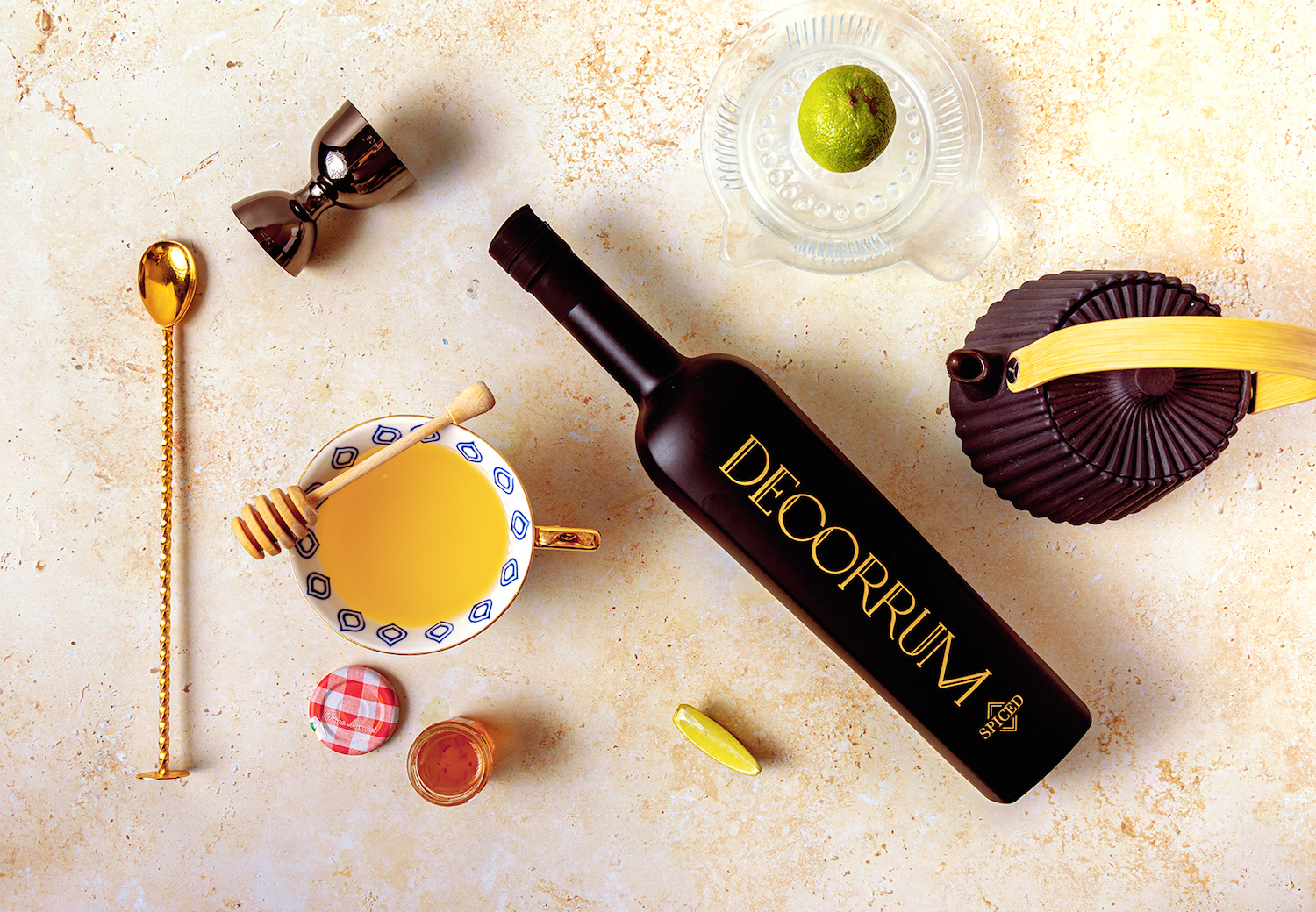
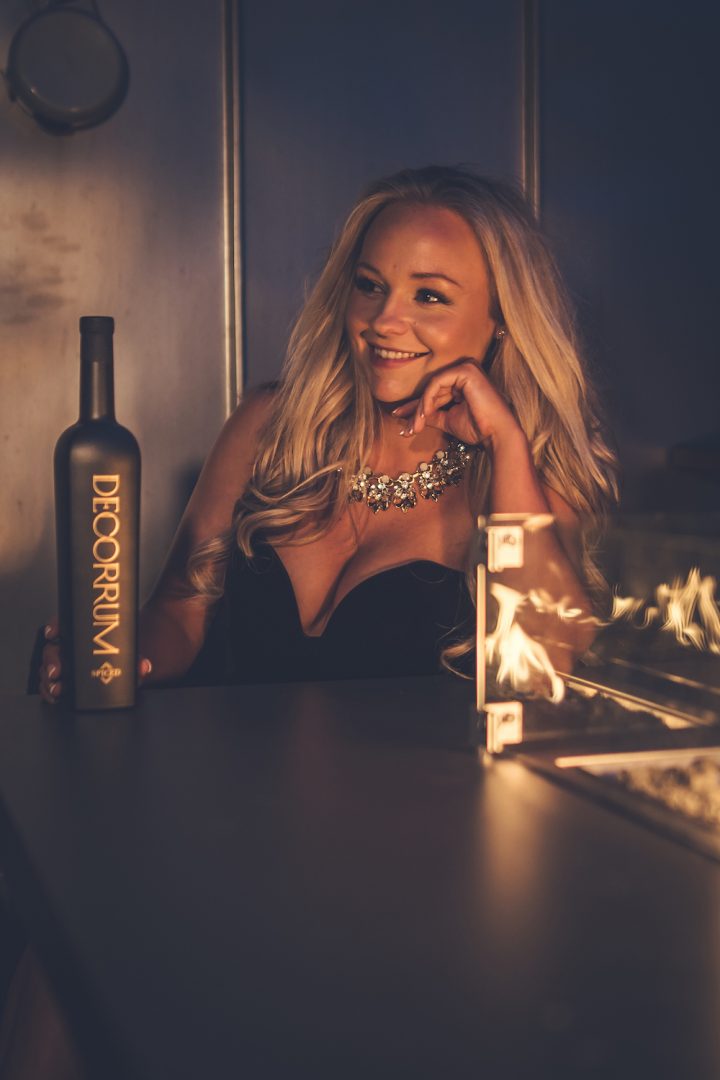
How did you get the idea to launch your company?
I love rum and during lockdown I started to explore different brands, quite quickly I released that rum felt heavily marketed to men. I wanted to produce a rum that was a move away from the stereotypical pirate themed bottles, create something that focuses on a luxe and more sophisticated image.
Decorrum is smooth in every sense, it taps into the art deco era, the glamour of the Great Gatsby and the 1920’s. Life can be too serious sometimes and Decorrum is the break from this.
What, if any, challenges have you faced as a woman breaking into this sector?
There are so few female entrepreneurs within the drinks industry – never mind Rum business – setting up I knew there was a niche to create something which women (as well as men) would love.
Breaking into a new industry there are always challenges being the new kid on the block – building contacts and connections in a new sector can be difficult. But over all I have found the industry has been very welcoming and eager to hear more.
How is the company striving to be more environmentally conscious / ethical in the future?
The Worker Bee of Manchester is a symbol of unity, strength and creativity and being from Manchester, this spirit is exactly what we wanted to embody in our business. With every bottle purchased, you will adopt a Honey Western Worker Bee located in a sanctuary on top of the iconic Printworks building in Manchester City Centre.
This adoption will go towards both supporting the Bee population & our eco-system but also a donation will be made to the charity ‘Forever Manchester,’ supporting community activity across the North-West.
9. Amboora
Founder(s): Nadia Hamila
Website: https://amboora.com/

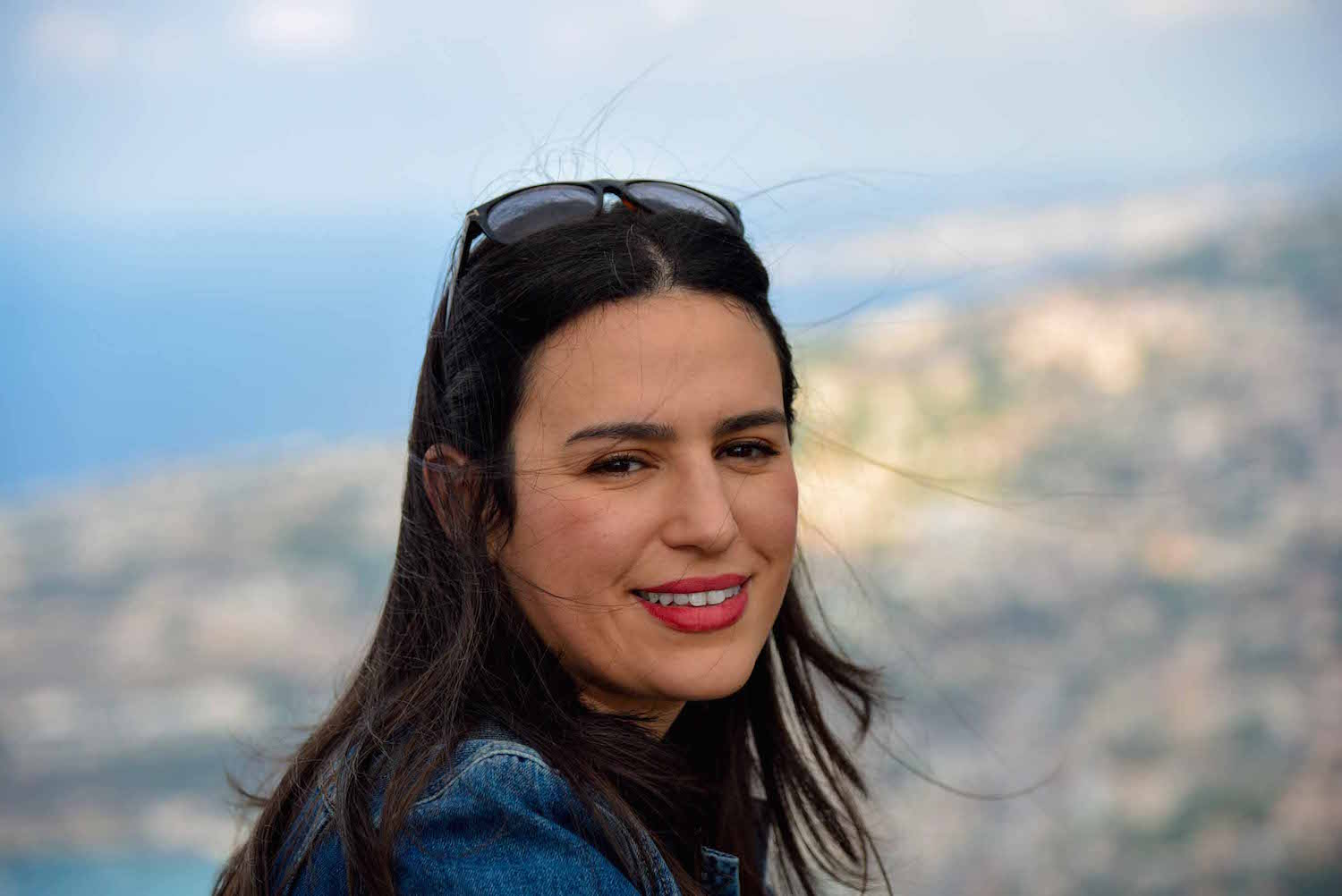
How did you get the idea to launch your company?
The story is 2 fold, when I had my daughter I was no longer passionate about my previous role and really wanted to start my business but had no idea what. Raising my daughter I wanted her to be connected to Morocco as part of her heritage and knew the best way would be storytelling and food. At the same time, lots of friends and colleagues were visiting Morocco and couldn’t find ways to recreate the same meals at home with products in the market. I gave my own spice blends along with recipes and they loved it.
One day I went to a food market in central London, saw products and people passionate about their businesses and a lightbulb moment with a shower of emotions, I turned to my husband and told him I know exactly what I want to do. As my daughter was the trigger for the change I decided to name the business after her.
What, if any, challenges have you faced as a woman breaking into this sector?
At the moment I haven’t come across any challenges for women entering the sector, yet!
How is the company striving to be more ethical / environmentally conscious in the future?
I named the business after my daughter. I want her to be proud of the company building in her name.
We are doing our best to create a responsible business looking after the planet by bringing back old cooking traditions, help reduce food waste and build a sustainable business.
Being a food brand, we are not looking at reinventing the wheel but to help bring back some of the traditions from our ancestors where food waste was kept to an absolute minimum and package our products in recyclable packaging.
As a business we will always aim to do what’s best for the consumer and planet. There is so much confusion about sustainability but you will be happy to know that it’s one of our top priorities. As we build the business, we will always aim to keep the planet as one of our top 3 values in our decisions. In addition, we just started to support an organisation in Morocco providing girls in Morocco who live in rural areas an education.



